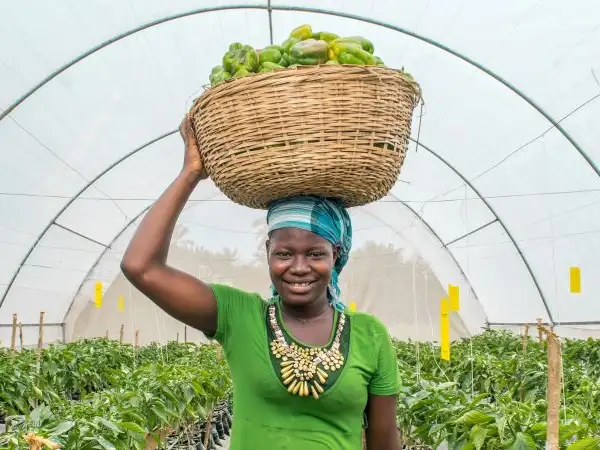
Sowing the seeds of poverty: How the World Bank harms poor farmers
The analysis in this report shows that the World Bank has made it easier for big agribusinesses to expand their role in food markets around the world.

This CAFOD report shows how the World Bank is failing in its duty to tackle poverty by promoting a model of agricultural development that benefits large-scale agribusiness at the expense of some of the world’s poorest smallholder farmers.
Agriculture is a key sector for many countries in the global south and has the potential to be a vital engine to help reduce poverty. However, this report shows that the World Bank has systematically overlooked the wide range of local food and farming systems that are essential to tackling poverty and the climate crisis.
Seeds are central to food production and the types of seeds available to farmers shape how our food is produced, what is produced and who makes a profit from its production. The report shows how farmers need access to diverse seeds, and in particular to local varieties adapted to their needs and local contexts. It shows how, across Africa, this access is under threat from the spread of an industrial model that seeks to increase the sales of agribusiness companies who sell hybrid seeds – and the chemical inputs such as fertilisers and pesticides needed to activate these types of seeds.
CAFOD’s analysis of the World Bank’s policy and funding instruments shows that it has focused almost exclusively on supporting farmers to buy hybrid seeds and fertilisers. It has ignored the role of farmer seed systems in enabling small-scale farmers to tackle poverty and enhance food security.
Our research also shows that the World Bank uses flawed metrics to measure the impact of its promotion of an industrialised agriculture model. Success has been measured by the Bank in terms of greater participation of the private sector in providing access to hybrid seeds and fertilisers, as opposed to measuring impacts based on poverty reduction or increased food security for poor farmers. As a result, large-scale agribusiness companies have been the main beneficiaries of the Bank’s involvement, profiting from increased sales and further concentrating their market share and control of agricultural systems.
This report takes a detailed look at why the current system is unsustainable. It highlights the transformational potential of agriculture to support global efforts to eliminate poverty and build a sustainable food system. It calls on the World Bank to support farmers to move toward agroecological production, which enables food to be produced sustainably and builds resilience to climate change.
The report concludes with four priority areas for action for the World Bank:
Stop supporting restrictive seed laws: The World Bank should immediately stop supporting narrow, restrictive seed laws that limit the access of poor smallholder farmers to seeds from both commercial and farmer-led seed systems. Instead, its starting point should be to support policies that uphold farmers’ rights to save, share, exchange and sell their seed varieties.
Invest in an agroecological transition: There needs to be an immediate and massive repurposing of billions of dollars of public finance away from supporting the industrial agricultural model based on hybrid seeds and chemical fertilisers towards sustainable and resilient production models, based on agroecological principles.
Support farmer seeds systems: As part of the agroecological transition, the World Bank needs to scale up its investment in diverse seed systems. This includes supporting the development of a policy environment that recognises and promotes seed diversity and farmer seed systems as well as practical actions, such as supporting participatory plant breeding, community seed banks and other community-level initiatives to protect and build crop diversity.
Measure what matters: Instead of measuring the increased activity of the private sector in hybrid seed and chemical fertiliser markets as a proxy of agricultural development, the World Bank should measure what matters to farmers. These measures include increased incomes; market access; reduction in levels of poverty, hunger and malnutrition; gender equity; soil and water quality; access to indigenous seeds; and crop diversity.
The global food system is broken. It doesn’t work for those who work the hardest – small farmers – and it’s a major driver of the climate emergency.
CAFOD's policy team provides briefings, reports and research on our advocacy and lobbying work, plus materials to support our campaigns.